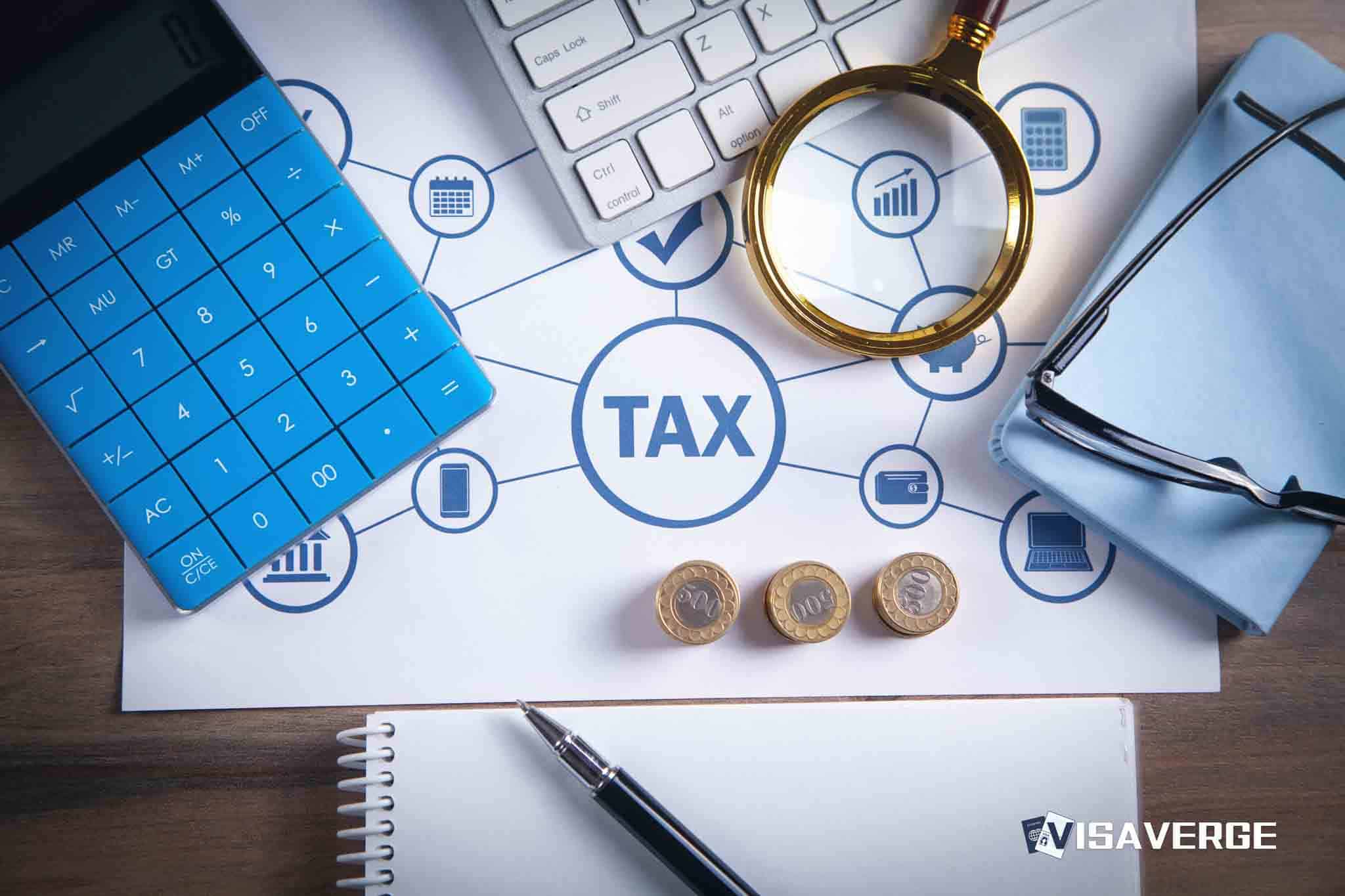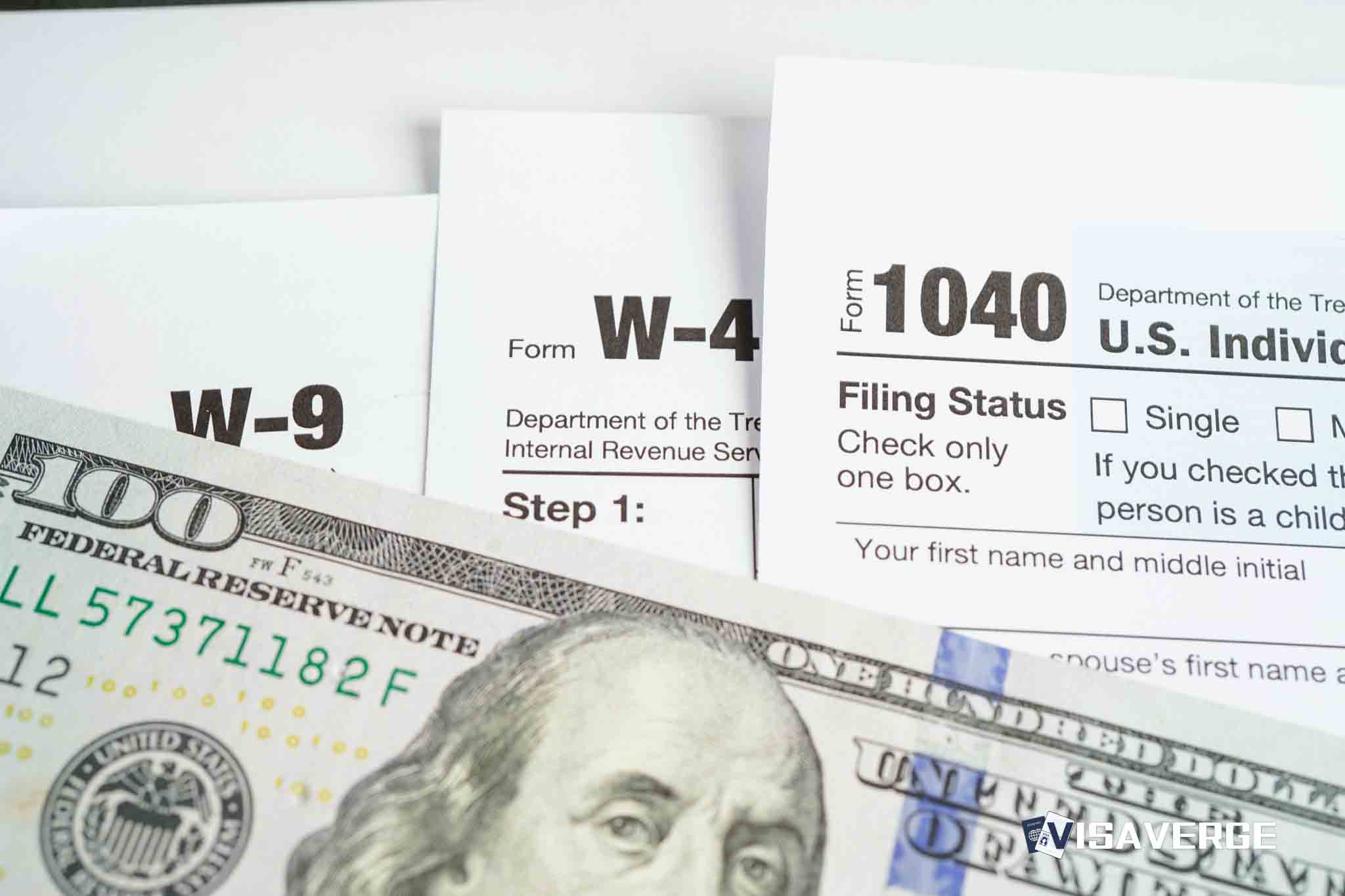Navigating Tax Treaties as an H1B Visa Holder
As a professional or student holding an H1B visa in the United States, understanding the complex world of taxation can be challenging. A question that frequently surfaces is whether H1B visa holders can claim tax treaty benefits. Tax treaties are agreements between two countries that aim to avoid double taxation for their residents and promote economic cooperation.
Can H1B Visa Holders Get Tax Treaty Advantages?
The United States has tax treaties with a number of countries, which can sometimes offer H1B tax treaty benefits. These treaties may provide reduced rates of tax for certain types of income, such as earnings from employment, interest, dividends, and royalties. It’s essential for H1B visa holders to determine if their country of residence has such a treaty with the U.S.
However, it’s crucial to note that not all H1B holders will be eligible for these benefits. Eligibility for tax treaty benefits depends on various factors, such as the specific provisions of the treaty with your country of residence, your tax residency status, and the type of income you receive.
How to Determine Eligibility for Tax Treaty Benefits
To find out if you can benefit from a tax treaty, consider the following steps:
- Review the List of Treaty Countries: Check the IRS list of countries that have tax treaties with the U.S. to see if your country is included.
- Understand the Specifics of Your Country’s Treaty: If your country has a treaty with the U.S., read the relevant sections that pertain to the type of income you earn. You can usually find the full text of the treaties on the IRS website.
-
Determine Your Tax Residency: In many cases, benefits are available to residents of the treaty country. You’ll need to prove that you’re a resident of the country in question for the purposes of the treaty.
Claiming Tax Treaty Benefits
If you determine that you are eligible for tax treaty benefits, you will generally claim them on your U.S. tax return. More specifically:
- Use IRS Form 8833: Some treaties require that you attach Form 8833 to your tax return to report and claim the treaty benefits.
- Consult a Tax Professional: Tax laws are complex and prone to changes. Consulting a tax professional who is knowledgeable in H1B tax treaty benefits is advisable to ensure accurate compliance.
Tax Benefits for H1B Visa Holders Under Domestic Law
Apart from tax treaties, there are certain tax benefits that H1B visa holders may be able to utilize under U.S. domestic tax laws:
- Standard Deduction: As of tax year 2018, certain non-resident aliens including H1B holders from India can claim the standard deduction due to a provision in the U.S.-India tax treaty.
- Itemized Deductions: If you’re not eligible for the standard deduction, you may still claim various itemized deductions if they apply to your situation.
-
Child and Dependent Care Credit: If you have dependents, you might qualify for certain credits to reduce your tax bill.
Keeping up-to-date with Immigration Laws and Tax Policies
U.S. immigration and tax laws are multifaceted and can change frequently. For the most current and detailed information, refer to the official U.S. Citizenship and Immigration Services (USCIS) website and the Internal Revenue Service (IRS).
To sum up, H1B visa holders may be able to claim tax treaty benefits, but it largely depends on the individual’s circumstances and the specific tax treaty between the U.S. and their home country. Thorough research and sometimes professional guidance are key to navigating these waters successfully. By understanding these opportunities, H1B visa holders can plan their taxes more efficiently and potentially lower their taxable income, leveraging the benefits offered within these legal frameworks.
Expert Insights
Did You Know?
- The United States has tax treaties with over 60 countries, aiming to prevent double taxation and promote economic cooperation. These treaties may offer tax benefits to H1B visa holders, including reduced rates of tax for various types of income.
- H1B visa holders need to determine if their country of residence has a tax treaty with the United States. They can check the official list provided by the Internal Revenue Service (IRS) to see if their country is included.
-
Even if there is a tax treaty between the United States and a country of residence, not all H1B visa holders will be eligible for tax treaty benefits. Eligibility depends on factors such as the specific provisions of the treaty, tax residency status, and type of income earned.
-
To claim tax treaty benefits, H1B visa holders generally need to complete IRS Form 8833 and attach it to their U.S. tax return. However, it is recommended to consult a tax professional who specializes in H1B tax treaty benefits for accurate compliance.
-
Apart from tax treaties, H1B visa holders may also be able to utilize certain tax benefits under U.S. domestic tax laws. For example, certain non-resident aliens, including H1B holders from India, can claim the standard deduction due to a provision in the U.S.-India tax treaty.
-
It is important for H1B visa holders to stay updated with both immigration laws and tax policies, as they can be complex and subject to frequent changes. The official websites of the U.S. Citizenship and Immigration Services (USCIS) and the IRS provide the most current and detailed information regarding immigration and tax regulations.
Remember, understanding the opportunities provided by tax treaties and domestic tax laws can help H1B visa holders plan their taxes more efficiently, potentially lowering their taxable income within the legal frameworks established.
Learn today
Glossary or Definitions
- Tax treaty: An agreement between two countries that aims to avoid double taxation for their residents and promote economic cooperation by establishing guidelines for taxation of income and assets.
- H1B visa: A non-immigrant visa category in the United States that allows employers to temporarily hire foreign workers in specialty occupations. It is commonly used by professionals in fields such as science, engineering, and information technology.
-
Tax treaty benefits: Advantages provided to individuals or entities under a tax treaty, such as reduced tax rates for specific types of income or exemptions.
-
Double taxation: The imposition of taxes on the same income or assets by two or more countries. Tax treaties help prevent this by defining rules on how income and assets should be taxed to avoid duplication.
-
Tax residency: The determination of an individual’s tax status based on their physical presence or other factors, which can affect their eligibility for tax treaty benefits.
-
IRS: The Internal Revenue Service, a government agency within the United States Department of the Treasury responsible for administering and enforcing the country’s tax laws.
-
Form 8833: A form used by taxpayers to report treaty-based positions and claim benefits under a tax treaty.
-
Standard deduction: A fixed deduction amount that reduces taxable income, available to certain taxpayers who do not itemize their deductions.
-
Itemized deductions: Specific expenses that taxpayers can deduct from their taxable income, such as medical expenses, mortgage interest, or charitable contributions, if they exceed the standard deduction.
-
Child and Dependent Care Credit: A tax credit available to taxpayers who incur expenses for the care of their dependents, such as their children or disabled family members.
-
U.S. Citizenship and Immigration Services (USCIS): A government agency under the U.S. Department of Homeland Security responsible for overseeing lawful immigration to the United States and granting various immigration benefits.
-
Legal frameworks: Laws, regulations, and policies that provide the basis for governing a particular area, such as immigration and taxation.
So there you have it, navigating tax treaties as an H1B visa holder can be a tricky endeavor, but with the right knowledge and guidance, you can potentially take advantage of tax treaty benefits and domestic tax laws. Remember to keep up-to-date with immigration laws and tax policies, and feel free to explore more helpful resources and information on visaverge.com. Happy tax planning!
FAQ’s to know:
FAQ 1: Can H1B visa holders claim tax treaty benefits?
Yes, H1B visa holders may be able to claim tax treaty benefits. The United States has tax treaties with several countries, which can provide reduced tax rates on specific types of income. However, eligibility depends on factors such as the provisions of the treaty with your country of residence, your tax residency status, and the type of income you receive. To determine eligibility, review the IRS list of treaty countries, understand the specifics of your country’s treaty, and establish your tax residency.
FAQ 2: How can H1B visa holders determine their eligibility for tax treaty benefits?
To determine eligibility for tax treaty benefits, follow these steps:
1. Review the IRS list of countries that have tax treaties with the U.S. to see if your country is included.
2. Understand the relevant sections of your country’s treaty that pertain to the type of income you earn.
3. Establish your tax residency in the treaty country to potentially qualify for benefits.
Thoroughly researching and understanding the specific provisions of the tax treaty is essential to determine eligibility for tax treaty benefits.
FAQ 3: How can H1B visa holders claim tax treaty benefits?
If you are eligible for tax treaty benefits as an H1B visa holder, you generally claim them on your U.S. tax return. To do so:
1. Fill out IRS Form 8833, if required by the specific treaty. This form reports and claims the treaty benefits.
2. Attach Form 8833 to your tax return to ensure accurate reporting.
3. It is advisable to consult a tax professional who is knowledgeable about H1B tax treaty benefits to ensure compliance with tax laws. Tax laws are complex and subject to change, and professional guidance can help navigate them accurately.
What did you learn? Answer below to know:
- True or False: H1B visa holders can claim tax treaty benefits regardless of their country of residence.
- What is the purpose of tax treaties between countries?
a) To promote economic cooperation
b) To increase tax rates for residents
c) To complicate tax filing for H1B visa holders
d) To discourage international business
- What form should H1B visa holders generally use to report and claim tax treaty benefits on their U.S. tax return?
a) Form 1040
b) Form 8843
c) Form 8833
d) Form W-2














